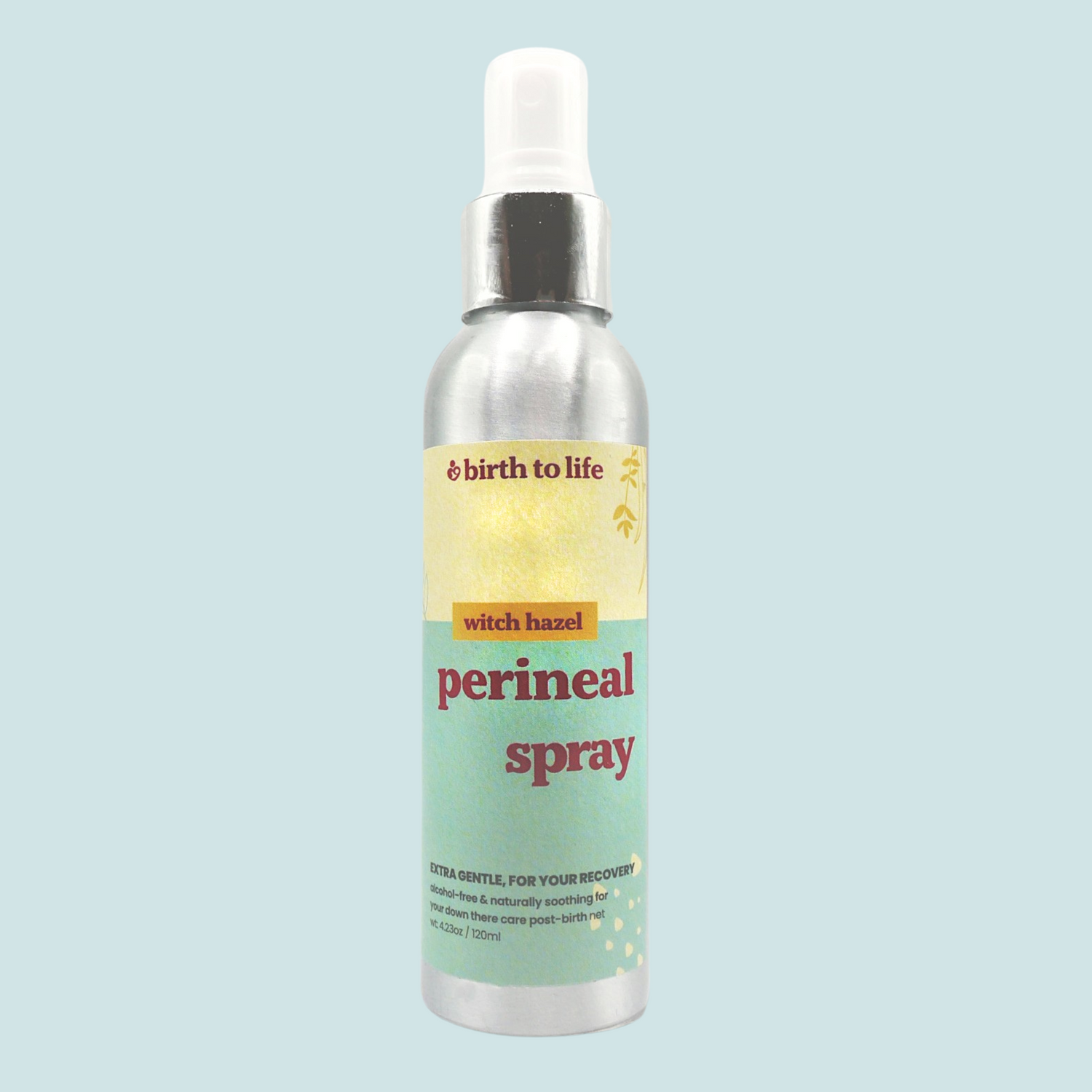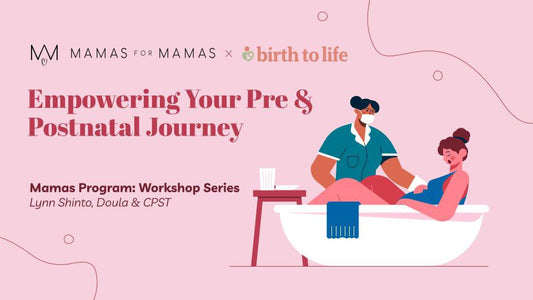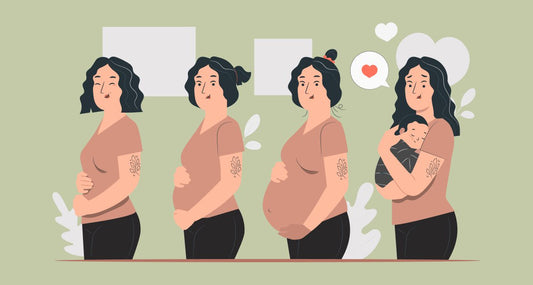Top 10 Foods for Recovery and Breastfeeding
Hello, lovely parents! Welcome to the wild and wonderful journey of parenthood. Here at Birth to Life, we firmly believe that every person deserves an incredible birth experience, and that this wild ride called ‘parenthood’ doesn’t have to be so hard. Today, I want to emphasize the often overlooked aspect of the postpartum period – the importance of proper nutrition after childbirth.

Why is postpartum nutrition crucial?
During pregnancy, your body endures a series of major changes caused by surges in hormones and increased blood volume. These postpartum body changes continue as your body multitasks to heal, adjust to hormonal fluctuations, and produce breast milk if you're nursing. Balancing these tasks with caring for a new baby can deplete your energy levels and impact your overall health. Therefore, postpartum nutrition is crucial for your physical recovery and mental well-being during this period.
I also offer Postpartum Recovery Meals, made fresh at your home as a set! Everything you need to bring warmth back to your body and support with lactation & milk supply. Learn more.

Five Major Food Groups for Postpartum Nutrition
To ensure you're meeting your nutritional needs after giving birth, focus on including the five major food groups in your postpartum diet—fruits, vegetables, grains, proteins, and dairy. Let’s delve into some nutrient-rich foods for postpartum that are particularly beneficial for new moms, such as food to eat after giving birth that supports recovery and wellness.
1. Whole Grains
Whole grains, such as oatmeal, quinoa, and brown rice, are nutrient-dense carbohydrates that are vital for postpartum nutrition. They provide essential energy, fiber, and B vitamins that support healing and milk production. Including whole grains in your diet can help stabilize your blood sugar levels, keeping you full and energized throughout the day.
2. Lean Proteins
Lean proteins, including poultry, fatty fish, and steak (in moderation), are key components of postpartum nutrition. They help to heal your body and repair your skin inside and out. They balance blood sugar, provide essential nutrients like iron and vitamin B12, and support energy levels. For our vegetarian and vegan parents, plant-based proteins like lentils and beans are excellent alternatives.
3. Fruits and Veggies
Fruits and vegetables are packed with essential vitamins, minerals, and fiber that are crucial for postpartum nutrition. They nourish your body, build milk supply, and promote healing. Foods like oranges and blueberries are excellent sources of Vitamin C, which aids in tissue repair and boosts your immune system. Leafy green vegetables like spinach and broccoli are rich in vitamins A, C, E, and K, along with iron, magnesium, potassium, and calcium.
4. Dairy Products
Dairy products like milk, cheese, and yogurt provide essential calcium to support your bone health and promote adequate milk production, which is a key aspect of postpartum nutrition. If you're lactose-intolerant or following a vegan diet, fortified plant-based milk alternatives and coconut yogurt are great options.
5. Healthy Fats
Incorporating healthy fats such as avocados, nuts, seeds, and fatty fish into your postpartum nutrition plan is essential. These fats provide energy, support healing, reduce inflammation, and enhance the quality of your breast milk. They also maintain your skin's radiance and combat inflammation, making them indispensable for your postpartum diet.

Key Nutrients for Postpartum Recovery
Now, let's delve into the specifics of postpartum nutrition, focusing on certain nutrients that are crucial for your recovery after childbirth.
1. Iron
Iron is a key component of postpartum nutrition, helping to replenish your blood stores and maintain robust energy levels. Iron-rich foods include lean meats, legumes, leafy greens, and fortified cereals.
2. Calcium and Vitamin D
Maintaining bone health is a pivotal aspect of postpartum nutrition. Consuming calcium-rich foods like dairy products, leafy greens, and fortified foods, coupled with Vitamin D from sunlight and certain foods like eggs and fatty fish, ensures your bones remain strong and healthy during the postpartum period.
3. Choline
Choline, an important nutrient in postpartum nutrition, supports brain development and communication within your body. Foods rich in choline include eggs, beef, fish, and dairy products.
4. Omega-3 Fatty Acids
Omega-3 fatty acids are vital for heart and brain health and play a role in preventing postpartum depression. These essential nutrients are a part of a comprehensive postpartum nutrition strategy and can be found in fatty fish like salmon and mackerel, as well as in nuts and seeds.
Additional Tips for Postpartum Nutrition
- Stay Hydrated: Water is essential to decrease swelling, flush excess sodium from the body, and support lactation. Aim to drink at least eight glasses of water each day, and more if you're breastfeeding.
- Consider Vitamin Supplements: If you have dietary restrictions that prevent you from eating certain nutrient-rich foods, you might need to consider taking vitamin supplements. However, always consult with your doctor or a registered dietitian before starting any supplements.
- Avoid Empty Calories: Try to avoid processed foods, excess sugar, and foods with artificial sweeteners, all of which can make you feel tired and lethargic. Instead, focus on nutrient-dense foods that provide sustained energy.

How Can Birth to Life Help?
At Birth to Life, I offer a postpartum meal plan designed to nourish your body with balanced, nutrient-rich foods during this critical time. Understanding that every new parent's journey is unique, I'm committed to providing personalized postpartum dietary plan support every step of the way.
Remember, reaching out for help is not a sign of weakness but a testament to your strength and dedication to your family's wellbeing. If you have any questions about postpartum nutrition or need postpartum support during your postpartum journey, don't hesitate to schedule a free call with me today!
Last but not least, I also offer Postpartum Recovery Meals, made fresh at your home as a set! Everything you need to bring warmth back to your body and support with lactation & milk supply. Learn more.
Final Thoughts
The postpartum period is a time of healing, growth, and adjustment. By prioritizing your nutrition during this postpartum time, you're not only taking care of your own health but also ensuring that you're the best parent you can be for your new little one. Remember, you are not alone in this journey. Here at Birth to Life, we're here to support you every step of the way.
FAQs
What should I avoid eating postpartum? Avoid processed or packaged foods (and beverages) high in saturated fats, extra sugars, or salt as part of your healthy eating plan. While caffeine is safe while breastfeeding – and let's face it, if anyone needs it, it's a new mom – some babies may be sensitive to it, so limit your intake to 300 milligrams or less.
What foods increase breast milk? You may be able to increase your breast milk production capacity by consuming more of the best postpartum foods like dark leafy green vegetables, fennel, chickpeas, almonds, flaxseed, and brewer's yeast – along with making sure your eating habits are well-balanced overall.
Remember, you are not alone in this journey. Reach out to me at Birth to Life for professional postpartum support and care. You've got this, mama!







0 comments